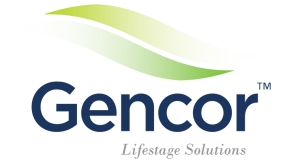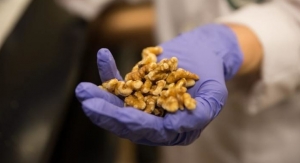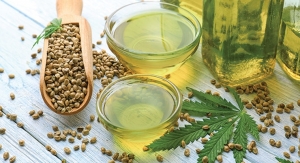05.23.19
A new study published in the InflammopharmacologyJournal shows that Levagen, Gencor’s palmitoylethanolamide (PEA) extract, is safe and effective for knee osteoarthritis.
PEA is produced in the body as a biological response and as a repair mechanism for inflammation. It is a simple fatty acid amide that is structurally related to the endogenous cannabinoid transmitter, anandamide (AEA). AEA is associated with regulating pain, and the more AEA in the bloodstream, the less discomfort a person may feel. PEA has numerous clinical studies demonstrating it is an effective and safe anti-inflammatory, analgesic, and tissue-protective nutrient.
The recently published study aimed to examine the safety, tolerability, and efficacy of palmitoylethanolamide (PEA) when dosed at 300mg and 600mg per day on symptoms of knee osteoarthritis.
“Osteoarthritis is one of the most common joint related concerns caused by the breakdown of articular cartilage and remodeling of joint tissues driven by inflammatory mediators,” said R.V. Venkatesh, managing director at Gencor. “The results of this study demonstrated the powerful effects of Levagen and its ability to not only reduce WOMAC pain scores but its ability to reduce anxiety levels, according to the Depression Anxiety Stress Scales (DASS).”
The eight-week, double-blind randomized placebo-controlled study also concluded that Levagen may be a novel treatment for attenuating pain and reducing other associated symptoms of knee osteoarthritis at both 300mg and 600mg per day.
“PEA is unique due to its several fast-acting therapeutic effects,” said Chase Shryoc, vice president of sales and business development. “The study recipients reported a gradual reduction of WOMAC pain scores in just one week with further significant reductions at week 4 and 8. In addition to joint health, Levagen can also aid in restful sleep and recovery.”
There are additional clinical studies taking place with Gencor’s Levagen which are expected to be released later this year. Gencor is also putting additional research into Levagen+, its cold-water dispersible powder, specifically designed to increase the bioavailability of PEA.
PEA is produced in the body as a biological response and as a repair mechanism for inflammation. It is a simple fatty acid amide that is structurally related to the endogenous cannabinoid transmitter, anandamide (AEA). AEA is associated with regulating pain, and the more AEA in the bloodstream, the less discomfort a person may feel. PEA has numerous clinical studies demonstrating it is an effective and safe anti-inflammatory, analgesic, and tissue-protective nutrient.
The recently published study aimed to examine the safety, tolerability, and efficacy of palmitoylethanolamide (PEA) when dosed at 300mg and 600mg per day on symptoms of knee osteoarthritis.
“Osteoarthritis is one of the most common joint related concerns caused by the breakdown of articular cartilage and remodeling of joint tissues driven by inflammatory mediators,” said R.V. Venkatesh, managing director at Gencor. “The results of this study demonstrated the powerful effects of Levagen and its ability to not only reduce WOMAC pain scores but its ability to reduce anxiety levels, according to the Depression Anxiety Stress Scales (DASS).”
The eight-week, double-blind randomized placebo-controlled study also concluded that Levagen may be a novel treatment for attenuating pain and reducing other associated symptoms of knee osteoarthritis at both 300mg and 600mg per day.
“PEA is unique due to its several fast-acting therapeutic effects,” said Chase Shryoc, vice president of sales and business development. “The study recipients reported a gradual reduction of WOMAC pain scores in just one week with further significant reductions at week 4 and 8. In addition to joint health, Levagen can also aid in restful sleep and recovery.”
There are additional clinical studies taking place with Gencor’s Levagen which are expected to be released later this year. Gencor is also putting additional research into Levagen+, its cold-water dispersible powder, specifically designed to increase the bioavailability of PEA.

























